#c. Kevin
Explore tagged Tumblr posts
Note
“What? History Channel is a beautiful thing.” (kevin and ruslan)

#c. Kevin#~OH LET THE BULLETS FLY OH LET THEM RAIN MY LIFE MY LOVE MY DRIVE IT CAME FROM PAIN YOU MADE ME A BELIEVER; RUSLAN JAMAKOVICH
0 notes
Text
kevin day queen of exy BUT ALSO queen of fumbling bad bitches
#exhibit a: jean moreau#exhibit b: jeremy knox#exhibit c: andrew minyard#exhibit d: neil josten#AND they all ended up dating each other#to be a fly on the wall when he realises jean and jeremy are together#can aaron give him a chance please#kevin day flop princess of the century#nora give him a break#aftg#all for the game#the sunshine court#tsc#neil josten#andrew minyard#jean moreau#kevin day#jeremy knox#jerejean#andreil#kevjean#kandrew#kandreil#kevneil#kevjerejean#kerejean#keremy#zoe yaps
1K notes
·
View notes
Text
"Please, Tara is just fine, Kevin," the she-wolf muses, soft laugh rolling off her tongue. "Depends on the secret but usually, yes." A faint hum flees her lips as she offers a nod, settling back into her seat as a silence encompasses the pair for a brief moment before her tongue clicks lightly against the roof of her mouth. "You know, sometimes, talking about it is the best medicine," she offers. "Because either way, keeping it in or letting it out, it's gonna suck. And no you don't sound dumb. What happened was traumatizing, you're reacting like most people would."

"You're the best Mommy Kenner." Kevin said giving the other finger guns. Kevin paused for a moment. "Can you keep a secret." He asked. "I'm just trying to compartmentalize it. I feel like if I just talk about it. It will suck." He sighed. "I sound dumb don't I."

#c. Kevin#~she kissed demons and slept with ghosts because living with the dead felt more like home; Tara Kenner
17 notes
·
View notes
Text



I have a headcanon that Kevin was about to get adopted shortly before Doey was created. But something went wrong, the boy closed himself off from his potential parents and stayed at the orphanage.
#my art#fasta draws#poppy playtime#poppy playtime fanart#poppy playtime chapter 4#poppy playtime harley sawyer#harley sawyer#poppy playtime the doctor#poppy playtime kevin#poppy playtime kevin barnes#kevin barnes#doey the doughman#trust issues are good for your health (c) harley sawyer#sawyer actually believed he did a good thing by teaching kevin that#because sawyer's biggest trauma is from being betrayed
303 notes
·
View notes
Text
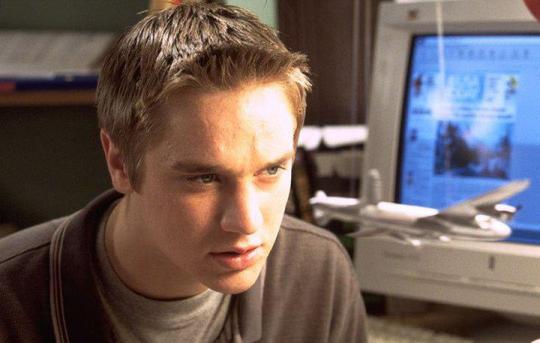
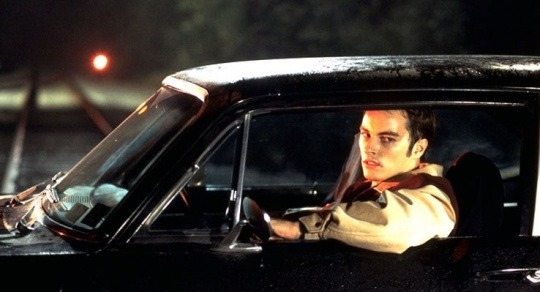

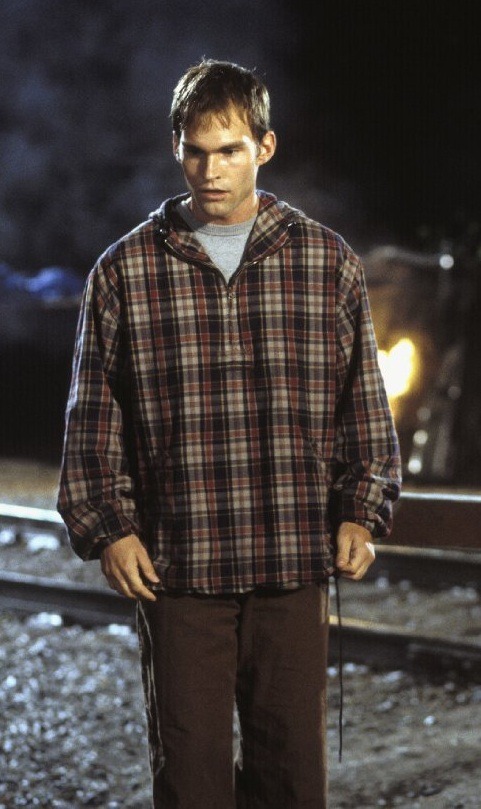
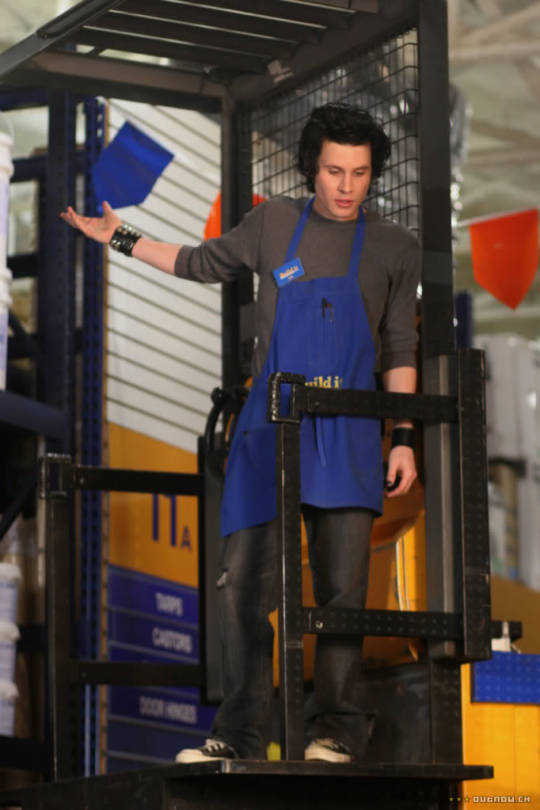

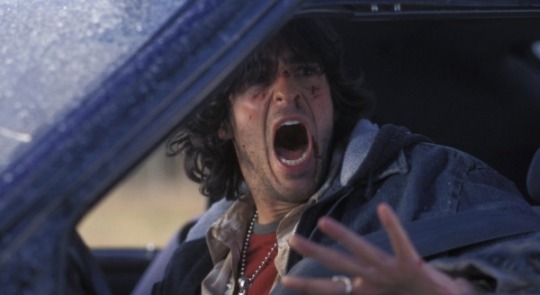



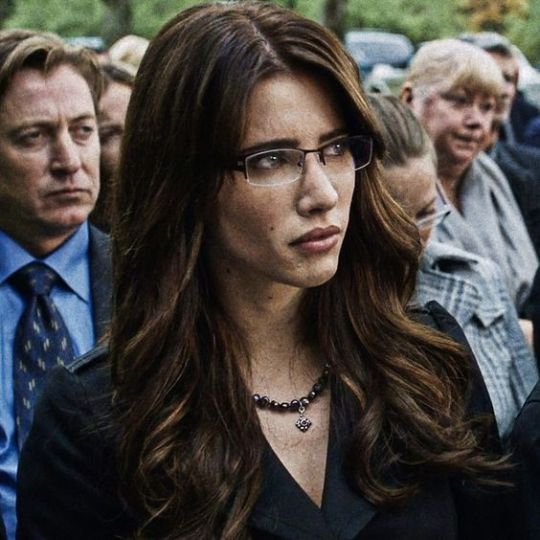

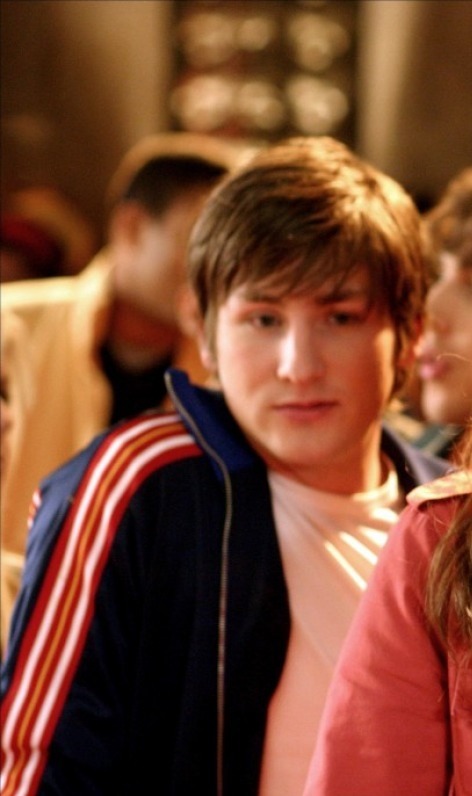
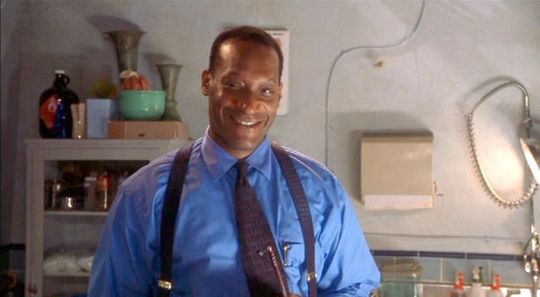
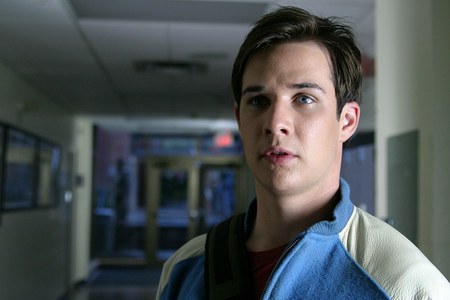
The most charismatic characters of Final Destination.
#final destination#alex browning#devon sawa#william bludworth#tony todd#clear rivers#ali larter#billy hitchcock#seann william scott#carter horton#kerr smith#final destination 2#thomas burke#michael landes#kat jennings#keegan connor tracy#rory peters#jonathan cherry#eugene dix#t. c. carson#t c carson#final destination 3#wendy christensen#mary elizabeth winstead#ashley freund#chelan simmons#ashlyn halperin#crystal lowe#ian mckinley#kevin fischer
386 notes
·
View notes
Text
confession time. lowkey i don't see what everyone else see's when they describe neil as being like some scary unhinged wild animal in tsc. like to me he's just neil being neil. insufferably blunt and honest, annoyingly snarky and incredibly perceptive to people around him. if anything i think it's more surprising how much more caring he seems. with regards to jean who he claims he can't stand. yet he promises they'll beat the ravens, doesn't say a word after jean trashes their room, is hesitant to leave the hospital room after he confirms riko is dead, asks after jean when jeremy calls kevin late at night, takes all of a couple minutes to decide to put a stop to jean's abuser, was ready to blow off the fbi and make a run for it from the thai restaurant when it seemed like jean wouldn't be able to contain his grief, told wymack he had him, told jean to find his own reasons to not wanna let go of life instead of holding on because he was told he had to, didn't touch jean until he absolutely had to and even then it was to remind him he was worth saving and he should believe it himself. like sure, him putting out a hit is a little unhinged maybe. but i have no doubts he wouldn't have done the same with drake if he'd been able to contact stuart at the time and things did not occur the way they did. again. it's just neil being neil. he's an instigator. and he even said it himself he was great at starting fights knowing he couldn't win them but doing it anyway.
#tho he's unreliable i get it#but i don't think he's wrong#he runs away from kevin after calling him the c word and he gets tossed about like a rag doll by the guy#he's more of an insensitive and blunt diplomat#is that the correct word#he knows how to use his words over his fists is what i'm tryna say#idk idk#maybe i'm misinterpreting what people are saying#neil josten#jean moreau#jeaneil#the sunshine court#tsc#all for the game#aftg
556 notes
·
View notes
Text
"When you're gay and autistic all characters are gay and autistic" have you considered they just actually are?
#queer#lgbtq#autism#autistic#I should know I am The Expert (TM)#bill cipher#stanford pines#misha bachynskyi#stanley pines#mabel pines#lloyd garmadon#<- THAT'S RIGHT#virgil sanders#steven universe#connie maheswaran#they're both non binary to me too#minecraft creeper#don't question that one#c!ranboo#c!schlatt#c!quackity#<- all of the dsmp people#minecraft steve#Kevin G#from mean girls#yeah#constance blackwood
62 notes
·
View notes
Text
Thinking about how Jean is always the sacrifice and never the one being sacrificed for. We know he used to stand between his mother and Elodie. His parents sacrificed him to the Moriyamas without a second thought, separating this young boy from everything he'd ever known, knowing the kind of person they were sending him to. Kevin sent Jean to Riko the night he left, not only subjecting Jean to torture as he made his escape (because we all know what "distract Riko" means and there's no way Kevin didn't) and implicating him in the escape plan causing him even more problems—not to mention the suffering that his absence caused.
So what happens when someone picks Jean. When they show him that he's worth something, that he's worth fighting for, that he's worth LOSING SOMETHING for. When Jeremy tells his family "I love him more than I fear you" and he faces retaliation and he tells Jean "you are worth this. I don't regret it." When his mother offers Jeremy his documents and finances to stop being involved with Jean and Jeremy says "nothing is worth losing him." What then??
#you could argue that everything involved with taking him in in the first place was a sacrifice but im not counting it#bc doing something for a stranger is different than doing something for someone because you know and care about them#and besides jeremy helped as a favor to kevin and c+l helped as a favor to Jeremy#jean moreau#aftg#the golden raven#jeremy knox#all for the game#jerejean#tgr#the sunshine court#always an angel never a god type shit
79 notes
·
View notes
Text

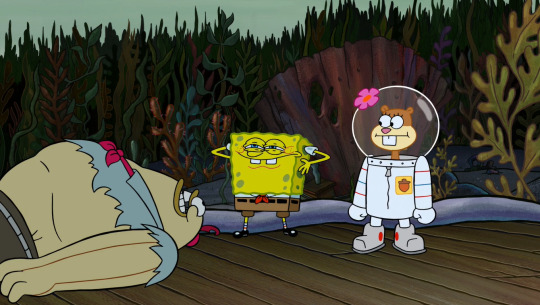


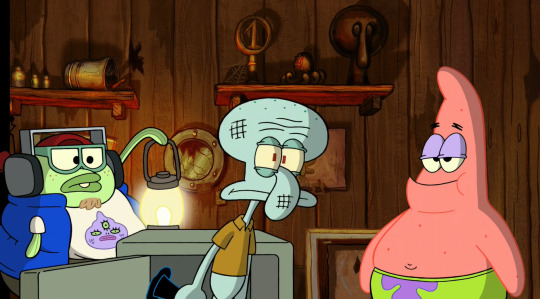


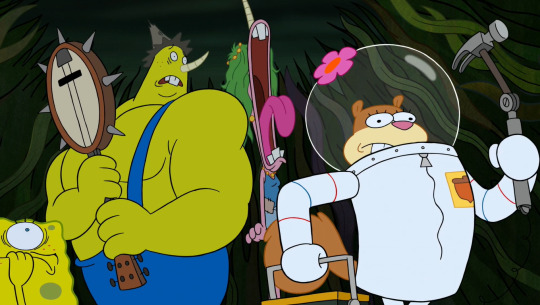

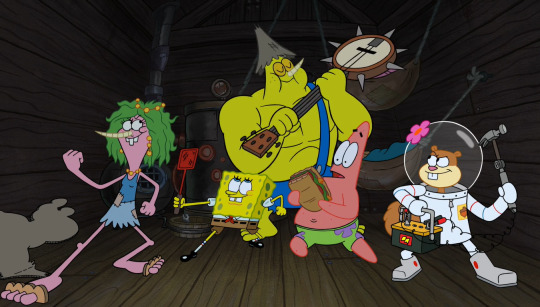
i took a lot of good 'draw the squad'-esque pics here
bonuses
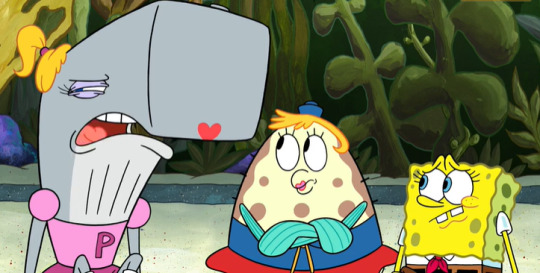


#screenshots#spongebob squarepants#kreepaway kamp#patrick star#sandy cheeks#mrs. puff#squidward tentacles#pearl krabs#mr. krabs#kevin c. cucumber#lady upturn#harvey#elwood#narlene narwhal#nobby narwhal#larry the lobster#perch perkins
152 notes
·
View notes
Text
It's not really related to the other conversation I was having about it, but I was already thinking about "The Conscience of the King" again (as one does), and the particular significance of the Kirk-Riley plot.
When I was first watching it, I thought Riley was super doomed, and we'd end up with Kirk as the last survivor standing to up the stakes of his decision. So for me, Riley's survival was very unexpected and intriguing. Even now, I feel like Kirk and Riley both surviving, and how that survival is handled in the episode, are much more effective and compelling for the narrative than the expected story line. I think the handling of Riley's survival shifts the stakes and dangers around the finale in a way that is far more resonant for Kirk's characterization and for what "The Conscience of the King" is really about than killing off Riley would have ever been.
To begin with, Kirk initially has no idea that Kevin "I'll take you home again, Kathleen" Riley* is one of the other surviving eyewitnesses. This ignorance is actually quite believable to me, given that both Kirk and Riley were children at the time, with Riley the younger of the two. Even if Riley had happened to mention his last name while they were trying to avoid starving to death or getting murdered by their own government, it's not exactly hard to believe that thirteen-year-old newly-minted genocide survivor James Kirk had more on his mind than remembering the full names of eight other people. The episode does make it clear, at any rate, that Kirk doesn't remember most of the other eyewitnesses' names, and specifically, had no idea that his mostly-upstanding crewman Riley is one of the other kids from Tarsus IV.
(The only other survivor Kirk definitely knows is Dr. Tom Leighton; Kirk is good friends with Leighton and his wife Martha, but not close enough to know much about Leighton's professional life or reputation.)
It also seems like Kirk hasn't ever tried to find out who the other survivors were, or what became of them later, despite having easy means of doing so. Rather, he has preferred to accept the official account of Kodos's death and to distance himself from the past as much as possible.
For most of the years between the genocide and the five-year mission, it seems like he found more comfort in philosophies and books and starships than rooting himself in any specific place or persona. In fact, there's a lot of reason to think he pretty drastically overhauled his entire presentation of his personality at some point in his 20s, and throughout TOS, he adopts and sheds different personas with what seems like ease—there is a control and performativity about him coupled with deep philosophical convictions that makes a lot of sense for someone repeatedly subjected to unfathomably traumatic, depersonalizing atrocities. Regardless, Kirk wanted to believe Kodos really was dead, and nothing could be done, and the only way forward was repression putting it all behind him (while still able to remember Kodos's speech to those slated for death, word for word).
It's only when he has reason to ask the computer for a complete list of the surviving eyewitnesses that Kirk links Kevin from Tarsus IV to the Lieutenant Kevin Riley of his own crew. He promptly asks for confirmation that they're the same person and receives it, which changes everything.
At that point, Riley's physical safety becomes a significant and unique concern for Kirk, above and beyond his usual preoccupation with the welfare of his crew. He has Riley demoted and separated from his peers to protect him—without explaining his motives to anyone, including Riley himself. He doesn't even acknowledge to anyone else that he knows Riley is the other eyewitness.
Meanwhile, Kirk maneuvers his way into trapping the Karidian players on the Enterprise with no escape route, so he can pursue his investigation into the murders of the other eyewitnesses without any serious impediment. He has very good reason to believe one of the players is murdering the eyewitnesses, most likely Karidian himself, but Kirk wants to be very sure about identifying Karidian as Kodos before he pulls the jaws of his trap shut.
This is all very understandable, but we end up with a cold, scheming, almost detached Kirk who is privately struggling to navigate the complexity of the investigation, the weight of the accusation he may have to make (but with it, the opportunity for justice at last), and the danger surrounding the serial killing of the eyewitnesses. Trapping the Karidian players on the Enterprise—that is, trapping the murderer on the Enterprise—puts himself and his crew directly in harm's way, a choice he rarely ever makes outside of the mandates of the five-year mission.
In fact, one of Kirk's most absolutely consistent qualities throughout TOS is his intense concern for his crew and general prioritization of their welfare as far as the mission allows. But there are a few occasions when he's forced to react to some kind of monumental, horrific event that has directly touched his own life, and in those cases, he tends to get consumed in dealing with The Horror and acts in ways profoundly unlike his usual self.
This doesn't only happen in "The Conscience of the King," but it's most conspicuous there. Kirk admits that he doesn't even know if he's after justice or vengeance, and when he says of his conduct around the investigation, "I've done things I've never done before," we can easily believe it.
Throughout much of this investigation, Kirk doesn't really talk to McCoy, a good friend. Kirk is prickly and standoffish towards Spock (something he almost never is in TOS), and as mentioned above, he tries to protect Riley by demoting him back down into engineering to keep him out of physical danger. When Spock correctly points out that Riley is a good officer who will take this as a punishment, Kirk brusquely shuts him down, and it's not completely clear if this is deliberate misdirection or genuine if displaced anger. Maybe he's cutting himself off from the person closest to him rather than face the emotional stakes of the genocide and more recent murders, or maybe it's a still more calculated (and highly unusual) attempt to keep Spock at arm's length.
Neither motive is sustainable, though. Spock's interpretation is later justified by a brief scene focused on Riley. Another officer jokes over the intercom about what Riley did to fuck up, and Riley admits that he has no idea what he did wrong, but finds it lonely and depressing to be so alone. The other officer half-jokes that Riley's heart is sore, and Riley asks Uhura to sing over the intercom so he at least feels like he's "not the only living thing left in the universe." Hell of a sentence in this context.
So at this point, Kirk's fixation on purely concrete, physical threats has led him to functionally isolate both himself and Riley. The fact that he and Riley share such a horrific experience and are now the last direct eyewitnesses to it still alive, yet Kirk's approach to this whole thing leads to Riley feeling completely alone in the universe—probably not the first time Riley has felt that way! all things considered!—pretty clearly signals that there's something wrong with how Kirk is thinking about this and approaching it.
It's not wrong in the sense of being directly immoral. Kirk's desire to protect Riley is both righteous and sympathetic, and his fear that Riley is in danger is quickly justified. Kirk has every right to try and stop the murders of the eyewitnesses (even if he weren't one of them!), and he's definitely right to pursue the justice that they've been denied for 20 years. But that's not all that's happening. Kirk leans on his professional power to get away with this, he calls in past favors, he generally jeopardizes the entire career/reputation that defines his fundamental sense of himself as a person, as well as leaving Riley convinced that his own career is in jeopardy as well, all to get the moving parts of these schemes in order. And Kirk does all this without explaining anything to anyone, including the other person most concerned.
Like, his way of handling this is just profoundly unhealthy for both of them. There's a reason that Kirk vacillates between "I don't want to rashly accuse this man of atrocities against sentient life with my sterling reputation backing whatever I choose to say, unless I'm really super ultra sure" and "maybe just fucking murdering this monster on the spot will let the dead sleep at last."
He acts this way here for the same reason, I think, that his response to Tom Leighton identifying Karidian as Kodos and desperately reaching out to him ("Jim, four thousand people were butchered ... Jim, Jim, I need your help") is indignant denial and effectively running away, yet he also can't resist the impulse to pick up the investigation anyway.
Kirk promptly starts researching the major figures involved via the powerful computers on the Enterprise; he reverses his decision to turn his back on Leighton and beams back down to join Leighton's cocktail party, seizing his chance to observe the Karidian players; with Karidian himself out of sight, Kirk zeroes in on Karidian's nineteen-year-old daughter Lenore as the obvious weak link and begins one of his most purely cold-blooded flirtations in the show, quietly maneuvering and/or extracting information every time they interact—and he initiates all of this before Leighton is murdered. And we'll see that vacillation repeat at varying points throughout the episode. Again and again, Kirk will resist truly engaging with the enormity of the genocide's legacy for him and others, but at the same time, we find him so clearly unable to move on, constantly shifting between avoidant uncertainty and this calculating, inexorable pursuit of justice/vengeance.
He's not the only one stuck, either. From almost the earliest moments of the episode, we see that Tom Leighton has built a successful career and loving marriage over the last 20 years, yet after his murder, his widow confides in Kirk that Leighton never really found peace. The rest of the episode makes it evident that this is equally true of Kirk himself. He has been very successful in his profession, like Leighton. He has built close relationships, most importantly with Spock, who has an intimate enough understanding of him to recognize the signs of danger and figure him out, like Martha. And like Leighton, Kirk has never found peace (something confirmed again as late as S3). And I would argue that in the end, it seems that Riley, too, has never really found peace.
Speaking of Spock! As all of this is unwinding, we repeatedly cut to Spock picking up on Kirk's dodgy behavior and investigating him. McCoy is reluctant to connect Kirk's ostensible interest in Lenore Karidian to the unexplained demotion of Riley or to whatever happened with Leighton—he really wants "Lenore is hot" to be the only explanation. But to Spock, all these disparate oddities are plainly related, and it frustrates him that McCoy refuses to see that or ally with him in breaking through to Kirk somehow.
Spock also correctly guesses that Kirk's pursuit of Lenore is actually about her father, even before discovering the genocide. When he searches for some underlying connection between Kirk's odd behaviors, he looks for common history between Riley, Kirk, Leighton, and Anton Karidian. At any rate, to Spock's analytical mind, the demotion of Riley is obviously part of the puzzle and obviously important. Of course, the Venn diagram of red flags that only Spock sees leads him to discover the actual common history no one is talking about.
It's this silence and isolation that ultimately makes Riley vulnerable to Lenore's murder attempt. The fact that he was lonely, and kept the intercom on to listen to Uhura sing and talk to his friends, is the only reason he survived Lenore poisoning him. He was able to call for help in time because he'd already reached out to other people. And it's in the wake of Riley's near-death that Spock is finally able to browbeat McCoy into (sort of) backing him in getting through to Kirk, their mutual friend, even if they relate to him in different ways. Spock's sharp question to Kirk just cuts through all the silence and scheming and bluster:
Why do you invite death?
This forces Kirk into an honest conversation about his plans and motives and what's going on with him. He's actually ambivalent until McCoy suggests letting it go, even if Karidian is Kodos—an option Kirk and Spock both sharply reject throughout the episode, but especially here:
MCCOY: What if you decide he is Kodos? What then? Do you play God, carry his head through the corridors in triumph? That won't bring back the dead, Jim. KIRK: No, but they may rest easier.
Apart from McCoy's struggle, the main implication here is that Kirk is considering not just a formal accusation against Karidian vs holding back due to insufficient evidence, but the third possibility of just straight-up murdering him. This would destroy Kirk's life as he knows it, of course, but he's at least considering that it may be the only way to make things right.
That choice wouldn't make him another Kodos by any stretch of the imagination, but it would reduce his existence to something entirely shaped by Kodos, by the genocide, by the genocide-apologia murders—by people who repeatedly suggest he's subhuman. Kirk has spent two decades crafting a life and personhood that isn't defined by what was done to him and Riley and Leighton and thousands of others, and he's on the edge of torching it all.
I think this is the real fundamental tension of "The Conscience of the King." The whodunnit of "Karidian is Kodos, but the murderer is Lenore" is far less central and compelling than what psychological path Kirk is going to take. He might choose pathological caution, demanding an impossible level of certainty that will let him avoid making the call and keep running; he might choose justice, making the accusation that all evidence in front of him as well as his own memory tells him is true, putting himself through reliving it as the older surviving eyewitness, but also living to see Kodos held accountable; he might choose vengeance, murdering a now-unarmed, elderly war criminal on the spot even if it means losing everything else that matters to him.
He's still hovering between those options as McCoy leaves the dispute. Spock, however, stubbornly stays with Kirk and keeps pushing. Because of that, Spock hears the hidden overloaded phaser that would have taken out the whole deck. That's what gives them enough time to evacuate the deck and safely dispose of the phaser. If Spock had noped out and gone back to the bridge or science labs, Kirk would have died. But Spock cares too much about Kirk and understands him too well to do that. Kirk survives because of his relationship with Spock.
It's the nearly-realized threat to Kirk's crew combined with the murder attempt against Riley that angers Kirk enough to abandon his schemes and just confront Karidian directly. The implication that Kirk is considering murder becomes explicit:
KARIDIAN: Blood thins. The body fails. One is finally grateful for a failing memory. I no longer treasure life, not even my own. I am tired! And the past is a blank. Did you get everything you wanted, Captain Kirk? KIRK: If I had gotten everything I wanted, you might not walk out of this room alive.
While all this is going down in Karidian's quarters, Riley has recovered in Sickbay from the poisoning. He happens to overhear McCoy's medical log mention that the motive for poisoning may be the possibility that Karidian is Kodos.
Riley, younger and more straightforward and impetuous, isn't afflicted by Kirk's indecision. He slips out, steals a phaser, and sneaks backstage to the Karidian players' performance, hearing enough of Karidian's speech to recognize him as Kodos and try to avenge his family. But as soon as Kirk receives reports about Riley's disappearance and the theft of the phaser, he knows what Riley has set out to do—the very thing he's been considering.
He orders Riley found and restrained, but seems to know this won't succeed, and rushes to the theatre himself. At this point, the stakes of the Kirk-Riley drama crystallize. Kirk's fixation on Riley's physical safety has always been short-sighted. The deliberate isolation of either himself or Riley has been a mistake from the beginning. The greatest danger to both Kirk and Riley has always been that either of them might self-destruct and assassinate Kodos, closing off the possibility of moving past him and what he did to them. Their lives would never be free of him.
Erin Horáková's famous "Kirk Drift" essay argues that the person most wholly defined by Kodos and the genocide at Tarsus IV is ultimately Lenore Karidian. Obviously, Kirk and Riley are in no danger of becoming the next generation of space Nazi genocide apologists. But they are in danger of their fundamental, autonomous, full personhoods—personhoods explicitly placed into doubt by both Kodos and Lenore—becoming reduced to monuments to Kodos, as Lenore's is. And I think that's a very fair reading.
The solution isn't for Kirk or Riley to kill him, nor for either to detach himself from the full horror of what happened. It's for Kirk to save Riley by personally finding and stopping him from reducing his life that way. I'm not sure anyone else alive could have gotten Riley to back down, nor that Kirk could have if they weren't finally in the same physical space. And I think the point at which Kirk stops Riley is the point at which we feel certain that Kirk isn't going to go down that path, either. It was for me, anyway!
I think it's also significant that the backstage conversation between Kirk and Riley is what triggers Kodos's attempt to confess to Lenore and express any kind of remorse for what he did. Like so many other like him, he thought he could unleash atrocities in his official capacity and then switch it off and have a normal family life, with an impermeable wall erected between the atrocities and his supposedly pure and innocent loved ones. But that was never going to happen, and Kodos is forced to face the reality that everything he touched was going to be tainted. Taking the shot intended for Kirk isn't redemptive; it's his only way out.
And that ultimate confrontation only happens because Kirk finally understood that protecting Riley meant more than keeping him alive.
-----------------
*Yes, I know this role was not originally written for that Riley. Irrelevant to the end result!
#me: this will just be a quick post about how it seems significant#that kirk and riley both seriously consider just murdering kodos and kirk goes from isolating riley and himself#because he can only understand saving riley in terms of physical safety - and isolation nearly gets riley and himself killed -#to saving riley by keeping him from doing what he himself is deeply tempted to do. and saving riley (for real in person) saves himself#i thought i'd write maybe three paragraphs in a morning#hahahaha. ha.#anghraine babbles#long post#star peace#james t kirk#kevin riley#spock#kodos#lenore karidian#star trek: the original series#anghraine's meta#tos: s1#tos: the conscience of the king#cw genocide#thomas leighton#c: who do i have to be#also though this is much more of a kirk episode it's interesting that this is such a good spock episode.#he's ethically instinctively and factually right about EVERYTHING at every turn
54 notes
·
View notes
Text

its t-girl bubble bass again (ft her supportive husband)
46 notes
·
View notes
Note
❛ you scared me. ❜ (kevin and ruslan)

#c. Kevin#//HE HAS NO WORDS#~OH LET THE BULLETS FLY OH LET THEM RAIN MY LIFE MY LOVE MY DRIVE IT CAME FROM PAIN YOU MADE ME A BELIEVER; RUSLAN JAMAKOVICH
1 note
·
View note
Text
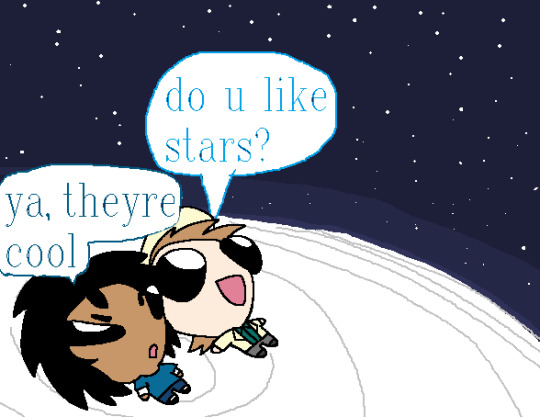
i hope this reaches the right audience
#konor not posting tcc stuff ? is this real ?#rediscovered c students after like 6 years now im hooked again#c students#c students august#c students kevin#kevin and august#animatedjames
154 notes
·
View notes
Text
“I rely on people,” Elodie counter matter-of-facts. “Or at least one person, my husband, but other than that they mostly just disappoint you.” A smile tugs across her lips at his offer, contemplating whether she should or not before eventually nodding. Very well,” she agrees. “I’ve only got roughly an hour though.”

"I use to be like that too. But I'm realizing there are some people who are willing to help." Kevin said with a smile. There was something sweet and motherly about her. "Elodie. That's a cool name." He said. "I think you need a treat. I'll buy you lunch." He offered.

#c. Kevin#~god is love but satan does that thing with his tongue that you love so much; elodie hassan
6 notes
·
View notes
Text


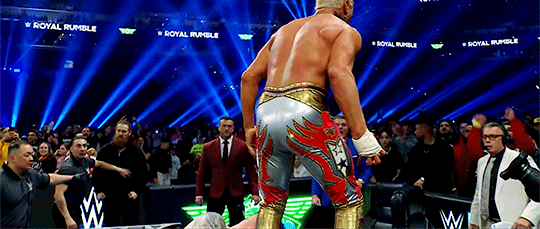








Lots of amazing Sami reaction moments at the end of the Cody and Kevin match. I've got a full thread on Bluesky breaking down the details, but suffice to say: it was A Lot.
111 notes
·
View notes
Text


9 (2009)


Director - Shane Acker, Cinematography - Kevin R. Adams






"We had such potential. Such promise. But we squandered our gifts, our intelligence. Our blind pursuit of technology only sped us quicker to our doom. Our world is ending. But life must go on."


#scenesandscreens#john c. reilly#crispin glover#jennifer connelly#fred tatasciore#elijah wood#alan oppenheimer#tom kane#Helen Wilson#shane acker's 9#Shane Acker#Kevin R. Adams#christopher plummer#martin landau
58 notes
·
View notes